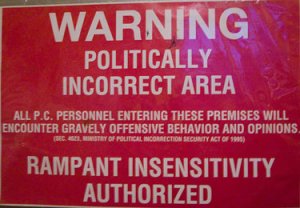I have been using StartPage for 8 years when it was Ixquick, you may want to also from now on…….
I have been using this Great search engine for 8 years now, I can tell you it says what it does and does what it says. In the big picture it really does not matter, the Feds have every other aspect of your life recorded anyway. But it is one small thing we can do, if nothing more than a symbolic resistance to their disregard of our Constitutional Right of Privacy which they have destroyed in their quest for total control.
And show our support to a company that will stand up for you against them, or are you even afraid to use them because you don’t want to draw attention to yourself. Your ISP will report to Big Brother you accessed their DNS but will not know what you search on, unlike google who reports what you are wearing. Perhaps most people are already slaves and would not risk association, that is fine so just move on to a poetry blog.
You have good reason to be afraid, the Federal Government has demonstrated they have, will and are going to punish anyone who even speaks out against them. The IRS is already doing this and it will get worse when they get full control of health care, you have a conservative blog spot, no healthcare for you. You talk ill of Obama, the IRS will be neck deep up your ass with audits. You talk about the Constitution DHS will interrogate you for domestic terrorism under FISA and drag you off under NDAA to never be seen again, yes it is all legal. Some sheep that call themselves Americans speak of a Police State that is coming, got a news flash, it is already here. We get what we deserve, too busy watching Jersey Shores to pay attention who was making the rules. Too late now.
I say Fuck the Federal Snoops!
The big flip-off: Company doesn’t give feds data
‘World’s most private search engine’ won’t betray you to Obama
The federal government may be secretly accessing Americans’ online videos, emails, photos and search histories – with the help of Apple, Google, Microsoft, Yahoo, Facebook, YouTube, PalTalk, AOL and Skype – but “the world’s most private search engine” is staunchly defending its users’ privacy and civil liberties.
StartPage.com and its sister search engine, Ixquick.com, were launched in 2006 to provide a private way for Americans to conduct Internet searches. StartPage provides a private portal to Google results, and Ixquick allows users to retrieve private results from other search engines.
WND reported in 2010 when Katherine Albrecht, a Harvard-trained privacy expert who helped develop StartPage, warned, “It would blow people’s minds if they knew how much information the big search engines have on the American public. In fact, their dossiers are so detailed they would probably be the envy of the KGB.”
It happens every day, Albrecht explained. When an unfamiliar topic crosses people’s minds, they often go straight to Google, Yahoo or Bing and enter key terms into those search engines. Every day, more than a billion searches for information are performed on Google alone.
“If you get a rash between your toes, you go into Google,” she said. “If you have a miscarriage, you go into Google. If you are having marital difficulties, you look for a counselor on Google. If you lose your job, you look for unemployment benefit information on Google.”
Albrecht said Americans unwittingly share their most private thoughts with search engines, serving up snippets of deeply personal information about their lives, habits, troubles, health concerns, preferences and political leanings.
“We’re essentially telling them our entire life stories – stuff you wouldn’t even tell your mother – because you are in a private room with a computer,” she said. “We tend to think of that as a completely private circumstance. But the reality is that they make a record of every single search you do.”
The search engines have sophisticated algorithms to mine data from searches and create very detailed profiles about Americans. She said those profiles are stored on servers and may fall into the wrong hands – for example, the federal government’s detailed files on unwitting U.S. citizens.
Just recently, the Washington Post reported it obtained a top-secret document on a government program in which the NSA and FBI are “tapping directly into the central servers of nine leading U.S. Internet companies, extracting audio and video chats, photographs, e-mails, documents, and connection logs that enable analysts to track foreign targets.”
The program, code-named PRISM, was utilized to obtain information that has become a critical part of President Obama’s daily briefing, according to the Post, which added, “NSA reporting increasingly relies on PRISM as its leading source of raw material, accounting for nearly 1 in 7 intelligence reports.”
And McClatchy recently reported, “Privacy policies for Google, Yahoo! and other Internet service providers explicitly state that the companies collect users’ data, such as names, email addresses, telephone numbers, credit cards, IP addresses, search queries, purchases, time and date of calls, duration of calls and physical locations.
“The policies say that companies may use that information to send you targeted advertising or, if necessary, to comply with requests from government authorities.”
In a December 2009 interview with CNBC, Google CEO Eric Schmidt divulged that search engines may turn over citizens’ private information to the government.
“If you have something that you don’t want anyone to know, maybe you shouldn’t be doing it in the first place,” Schmidt said. “But if you really need that kind of privacy, the reality is that search engines, including Google, do retain this information for some time. And it’s important, for example, that we are all subject to the United States Patriot Act. It is possible that information could be made available to the authorities.”
However, StartPage and Ixquick say they have neither participated in PRISM nor shared Americans’ data with the federal government.
“The privacy of our users rests on three important foundations,” explained StartPage and Ixquick CEO Robert Beens. “We are based in the Netherlands, we use encrypted connections, and – most importantly – we don’t store or share any of our users’ personal search data.”
A statement from StartPage and Ixquick explained:
- No user data stored: StartPage and Ixquick never store user data, including IP addresses and search queries, so government agencies have no incentive to ask for these. This privacy is so complete; the company doesn’t even know who its customers are, so it can’t share anything with Big Brother.
- Encrypted (HTTPS) connections: StartPage and Ixquick were the first search engines to use automatic encryption on all connections to prevent snooping. When searches are encrypted, third parties like ISPs and the NSA can’t eavesdrop on Internet connections to see what people are searching for.
- Not under U.S. jurisdiction: StartPage and Ixquick are based in the Netherlands, so they are not directly subject to U.S. regulations, warrants, or court orders. They can’t be forced to participate in spying programs like PRISM. The company has never turned over a single bit of user data to any government entity in the 14 years it has been in business, which is not surprising since there is no data in the first place.
“Unfortunately, it takes a scandal like PRISM to wake people up to the erosion of privacy, ” Albrecht said. “As people get fed up with being spied on, they look for alternatives. We already serve nearly 3 million private searches each day, and we expect that number to grow as people seek shelter from search engines that store and share their private information.”
This summer, the company plans to launch a new email service called StartMail, which will provide a paid and heavily encrypted private email application. Anyone interested in being a StartMail beta tester can now sign up.












It works exactly as described. I haven’t done a Google search in years. When my computer opens up, it opens up on StartPage.
Good post and excellent advice. The left leaning Propublica published a plug-in for Firetfox and Chrome that might help as well. https://www.propublica.org/article/worried-about-the-mass-surveillance-how-to-practice-safer-communication/
An interesting column from the Daily Caller
What do They know about you? An interview with NSA analyst William Binney
William Binney worked as a National Security Agency analyst for nearly 30 years, eventually becoming the technical director of the of the world geopolitical and military analysis and reporting group. After retiring from the NSA in 2001, Binney became an increasingly vocal critic of the intelligence community, raising alarms about mission creep, wasteful projects and surveillance of law-abiding Americans. Although he still collects a pension from his old employer, the NSA has yanked his security clearance and his home was raided in 2007 as part of a leak investigation in which he was eventually cleared. Binney spoke with The Daily Caller about the latest NSA revelations from his home in Maryland.
Read more http://dailycaller.com/2013/06/10/what-do-they-know-about-you-an-interview-with-nsa-analyst-william-binney/
Gene, me too, it’s the safest page to call home 🙂
Pat, thanks for the stories, both very good! In thinking about all of this for a couple of weeks now, it is very bad for America and Americans. Amazing thing is just how long it has been going on, and now the depth of it. If Hitler had the tech Obama has, their would not be a Jew left in Europe.
Now we see National ID is back up to bat yet again, why??????????
Also…
Adding Insult To Injury The IRS Has Ordered “Covert Coffee trays with Camera concealment,“Concealed clock radios along with other surveillance equipment